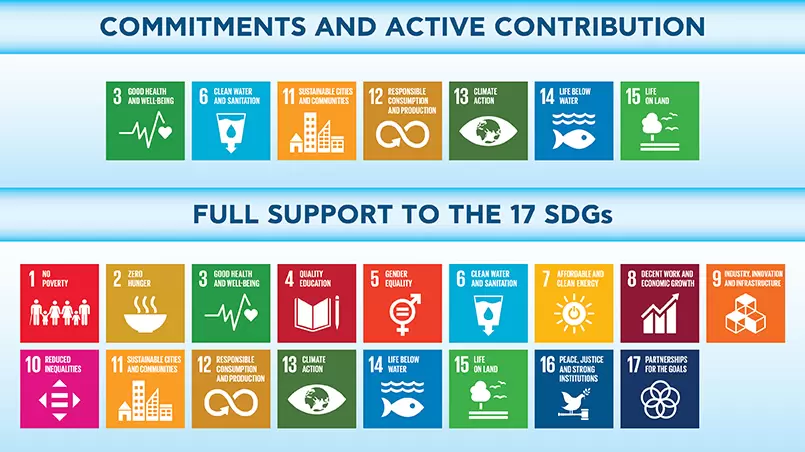Our Sustainability Strategy
Our goal is to continuously raise the awareness of our employees and all stakeholders in Sustainable Development issues through a series of organized large-scale programs with a positive environmental and social impact.
Sustainable Development is part of our culture and philosophy for a better future, meeting and even exceeding the needs and requirements of the modern-day consumer, in personal hygiene, offering a full range of products of excellent quality, high standards and excellent properties of friendliness to the skin and to the environment.
Year after year, we expand and develop the network of our social partners and actively support the young generation (scholarship programs, donations), the Elderly (Alzheimer’s campaign, donations to nursing homes), young needy mothers (MOTHER and CHILD Program) and vulnerable groups.
At the same time, we are constantly innovating, planning, setting targets as well as taking environmental initiatives in order to reduce the impact of the whole range of our activities.
We have strict Quality Management Systems, while having already acquired ISO 140001 and ISO 50001 for Environmental Management and Energy Management respectively.
Our uncompromising commitment to sustainability characterizes all our products and production processes.
Thus, we designed the Sustainability 2050 program, “Act Green: Redesign – Reduce – Recycle”, setting challenging targets, thereby proving our commitment to environmental protection.
For MEGA, Sustainable Development is an integral part of its strategy which consists of the following pillars:
a) Employees (equal opportunities, respect of human rights, suppliers’ compliance, safeguarding the health and safety of our employees and partners).
b) Consumers (customer satisfaction, production of excellent quality and safe products, sensitive concept, strict certifications for product safety and quality)
c) Environment (design of Act Green program, short-medium and long-term goals, reduction of indirect and direct CO2 emissions, RES usage in production and offices, responsible use of raw materials and full integration of the Circular Economy Principles in the production process).
d) Society (continuous social actions and programs, cooperation with local authorities and the local community and organization of targeted actions with a positive social impact).
